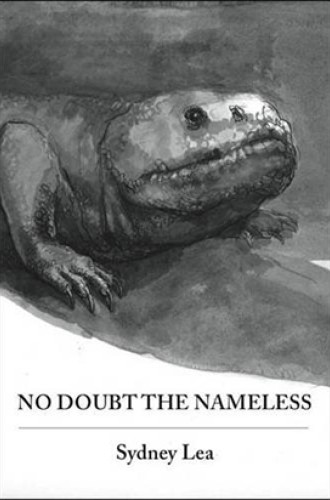Sydney Lea's poetry of memory
After many years looking at life in all its idiosyncrasies, Lea offers his 12th collection. It's intimate and authentic.
In one of the poems in this collection, Vermont poet Sydney Lea describes the plight of one he calls a “winter poet”:
Perhaps this is more than anything else what unnerves him:
that memory’s his topic, that he can’t resist it
and seek out something more lively.
These words gesture toward memoir and their irony is poignant, as it is difficult to imagine finding something livelier than memory, at least the way Lea explores it—or allows it to explore him. This insight is marked by the wisdom of acute observation and studied recollection, traits that have marked Lea’s writing over a distinguished career.
One can only celebrate what is Lea’s 12th collection. Something moving just above the unconscious mind stirs as the reading proceeds—as if we come to share something of the poet’s honesty and even modesty in his way of seeing others alongside himself. He hones his judgments against the uncertain edge of remembering, gesturing throughout toward what he describes as “the only life I’ve ever owned,”
though much of it I’ve held to my ammunition
pack, a keepsake from when I dared to presume
The world was all before me—as in fact it was.
Yes, “memory’s his topic,” not some wistful hope or quick knowing, which is what makes this collection so authentic and intimately real. Reading these poems slowly, page by page, we find ourselves paying more careful attention to the details streaming by in each moment of every life, including our own.
This call to pay attention—Simone Weil’s rendering of what constitutes prayer—is particularly clear at the close of a masterful poem titled “Gate, Beggar, and Birds.” Inspired by a scene in Acts 3, about a lame man carried daily to “the gate of the temple which is called Beautiful,” the poet admits that he “knows little of what might be called divine.” But he goes on, after musing about this man with his “impossible legs,” to describe the mournful song of a whippoorwill he’d heard, closing with these memorable lines:
But today I heard a certain sound,
teemed with sad beauty,
a doleful keening: whippoorwills,
so rare these days
they’re downright precious. I reminded myself
that in years long gone
that song was common
among these hills. It was everywhere.
And I scarcely noticed.
This poem is a call to be alive to what is—and implies, with the poet Rilke, that to do so we “must change” our lives.
The poems explore a wide range of people Lea knows. And despite the modesty of his whimsical disclaimer, “Who knows anyone, really?” he leads us masterfully, as a seasoned storyteller, into the tangled thicket of personality, with all the intractable contradictions this entails. We meet the poet’s neighbors, friends, and acquaintances, some radiant with generosity and others shadowed with mischief or deceit. All of them are real and, even if difficult, true to themselves.
When we read of “Nick” and his rage at his lazy father-in-law, encounter the violent bully named “Jack” who is as difficult to forgive as “Sean” is easy, and meet the poet’s “Grandma” through the long lens of remembering her a “lifetime later,” we feel ourselves eased by knowing—with the poet—that remembering refines our sense of things while carrying us into deeper uncertainties, “its details clear, / their meanings still vague.” Such a reminder is salutary, opening us—with the poet—to what beauty and truth we can find in the good and the bad alike.
Most of these poems come from a long look at life in the midst of its idiosyncrasies, and of the “Things That Vanish,” as the poet titles one of the last poems in this collection. Lea’s persistent irony and modest voice suggest what it is like to accept people and things as they are, rather than as they should be, or should have been. For those who want poetry immunized from the sharp edges of our often tragic and misshapen world, this is not the right book. But for those who prefer what is to what might have been, and know that what might still be rests on this acceptance, it is a book to cherish.
The final lines of one poem suggest the texture of the whole: after chronicling a raven’s apparently pointless “murder”—as he calls it—of a rodent, and mentioning in passing the homicide of a friend’s son, Lea offers words not meant to console, but which ultimately do as they bear witness to the dappled beauty that lies at the heart of our creaturely existence:
The world is only
what the world has always been,
and in this tableau
I see—do I dare say it?—
a beauty some painter
in her deftness might have captured.
The force we call nature:
I can both hate and love it,
after all, myself
being both in and of it.
Mark S. Burrows's most recent book is a new translation of Rainer Maria Rilke’s Prayers of a Young Poet (Paraclete). He is on the faculty of the University of Applied Sciences in Bochum, Germany.





